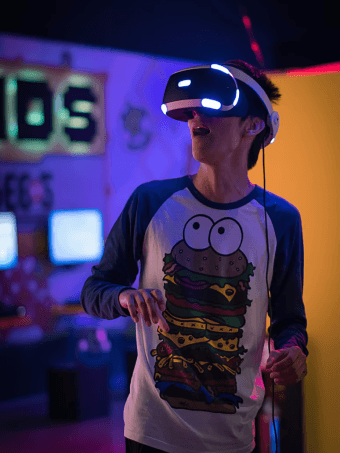In its application for trademark registration, Sony defined “Let’s Play” service as “electronic transmission and streaming of video games via global and local computer networks” [1]. In the context of the gaming community, the term Let’s play is one of the most established phrases. Beyond its literal meaning of prompting a call to action, this phrase defines one of the most popular genre of YouTube videos [2]. Thousands of YouTubers develop video content titled let’s play, providing guidance and insights on how to play specific games. This generic and widespread use of the phrase may seem as a sufficient reason for refusing the trademark application filed by Sony but the initial verdict was reached for a whole other reason. The intellectual property office found a conflict with an already existing trademark - Let’z Play of America that has been registered in 2013 by a Georgia-based company that organises and connects video gamers with online and offline events [3]. As a result, it was the reason of consumer confusion that resulted in the initial rejection of the application filed by Sony.
Further efforts pursued by Sony were however stopped by the McArthur Law Firm that issued a letter of protest to the USPTO, citing a range of examples regarding the generic and descriptive nature of the trademark [1]. As pointed out by Tassi [2], the initial dismissal was based on the wrong reason and it should have been the widespread use of the term that prevents Sony from registering a trademark on this phrase.
Two-fold implications can be raised for both the gaming community and Sony. On the one hand, the involvement of the gaming community in the trademark application process through the McArthur Law Firm has proved vital for achieving a long-term dismissal on Sony’s attempt. Consequently, the use of the let’s play phrase remains unrestricted and this YouTube genre can continue to grow. On the other hand, Sony has apparently failed to do its homework before registering for a trademark, resulting in the loss of money, effort and even reputation. The evaluation of already registered trademarks represents a fundamental step in this process that would have allowed Sony to recognise the conflict with Let’z Play of America. Furthermore, the reliance on this descriptive and generic phrase has created a wave of negative publicity for Sony that has undermined the attitudes of the gaming community.
—
[1] Yin-Poole, W. (2016), “Sony is trying - and failing - to trademark Let’s Play”, Eurogamer, available from: https://www.eurogamer.net/articles/2016-01-28-sony-is-trying-and-failing-to-trademark-lets-play
[2] Tassi, P. (2016), “Sony just tried to trademark Let’s Play and failed for the wrong reason”, Forbes, available from: https://www.forbes.com/sites/insertcoin/2016/01/12/sony-just-tried-to-trademark-lets-play-and-failed-for-the-wrong-reason/?sh=23d4895ef0c4
[3] Good, O. S. (2016), “Sony’s attempt to trademark Let’s Play is refused by the U.S”, Polygon, available from: https://www.polygon.com/2016/1/12/10754130/lets-play-trademark-sony


